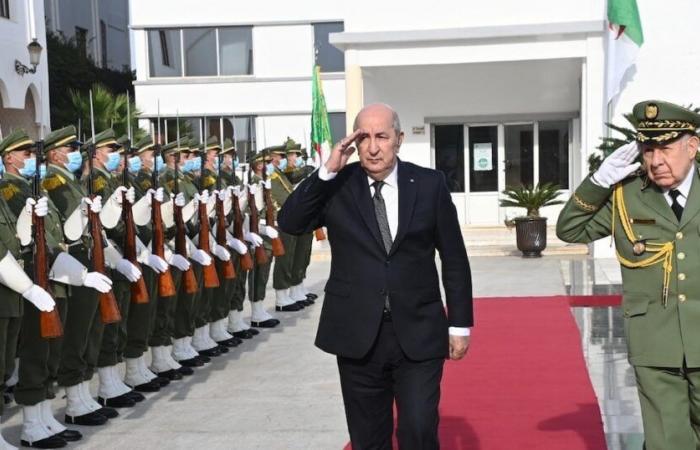In any country in the world, when a hostage-taking, especially of a terrorist nature, takes place, the local authorities are the first to react to this criminal incident by immediately communicating what happened and taking all measures to put an end to it. Only Algeria seems to be an exception in this regard. Its ruling junta is rather expert in the use of terrorism with a view to tracking down, imprisoning or silencing numerous political opponents. It shows that there is good and bad terrorism in Algeria.
Tuesday January 14, Algeria was the scene of a new terrorist act targeting a Spanish tourist. The latter was kidnapped in southern Algeria by armed terrorists, who released his guide and the people who were traveling with him, before taking him to Malian territory. This is a serious action which exposes the inability of the Algerian army to secure the territory and borders.
Let us imagine a vehicle, transporting terrorists, which drives hundreds of kilometers inside Algeria, intercepts a group of tourists, kidnaps them, resumes its path towards the south, crosses the Algerian-Malian border without the army reacting. And it is on this same army that the Algiers regime is counting in the event of armed conflict with Morocco!
Read also: Algeria: a Spanish national kidnapped by a terrorist group to the indifference of local authorities
The other lesson to be learned from this extremely serious affair is denial and burying our heads in the sand, raised to the level of state policy by the Tebboune-Chengriha duo. To date, no Algerian official or local media has addressed this kidnapping. It remains to be seen which sources, described as “reliable” by the Spanish government, informed it last Wednesday of this kidnapping. It is clear that it was one of the tourist’s companions who informed the Spanish embassy in Algiers, before the Algerian regime imposed silence on this incident.
Moreover, in a press release from the Spanish Ministry of Foreign Affairs, it is announced that the kidnapping took place in “a country in North Africa», a way of saying that the Algerian regime does not cooperate and prefers not to watch the events happening on its territory. What is certain is that the alert would have been given by a source speaking in Arabic, and who initially created confusion by speaking of “Rahina» (a hostage), which led people to believe at first that it was a Spanish woman who was kidnapped, whereas it was a man aged around sixty.
Read also: Algeria: disowned by Washington, the Algiers regime bows down
The location of the kidnapping was also specified by the said source, namely the mountainous region of Assekrem, a stone’s throw from the ultra-militarized town of Tamanrasset. Even the nature of the vehicle in which the kidnapped tourist was taken, an off-road pick-up, was disclosed to the Spanish authorities. Thanks to these details, and in the absence of information provided by the Algerian authorities, the Spanish intelligence services set up a crisis unit with a view to identifying the kidnappers of the Spanish hostage and establishing contact with them.
-In its edition of Monday January 20, the website of the Spanish newspaper The Confidential reports that the National Intelligence Center (CNI) “investigation again, as in 2009 and 2011, to determine in the hands of which jihadist group is the Spanish tourist captured in Algeria and transferred to Mali, and what is the possible amount of the ransom to be paid for his release“. Although Spain’s eyes are now turned towards Mali, the Algiers regime is far from being out of the rut, because its responsibility remains full in securing all foreigners who enter Algeria.
Read also: France-Algeria: Moudjahidine 2.0, influencers under influence?
Especially since the episode of the kidnapping of the Spanish tourist has awakened dramatic memories of foreign nationals kidnapped or killed in Algeria. We remember that two Spanish aid workers, Ainhoa Fernadez and Enrique Gonyalons, in addition to an Italian woman named Resella Orru, were kidnapped in October 2011 in the Sahrawi camps of Tindouf in Algeria and immediately handed over by the Polisario militiamen. to terrorist groups based in northern Mali. These hostages were released ten months later upon payment of a large ransom.
The bloodiest foreign hostage taking in Algeria was that of January 16, 2013, when its army and intelligence services were irremediably weakened by their lack of professionalism, revealed to the whole world. Indeed, under the pretext of saving dozens of Western hostages, held on the Tiguentourine gas site (In Amenas) by the Algerian terrorist leader Mokhtar Belmokhtar, Algerian soldiers massacred 38 hostages of different nationalities and a handful of attackers, the majority of whom managed to escape after three days of occupation of the gas site.
Read also: Algeria: the atrocities of Generals Chengriha, Medjahed, El Djen and Djebbar during the Black Decade
We therefore understand that the only communication made last Wednesday by the Algerian regime was the one in which it rushed to ask the Support Group for Islam and Muslims (JJNIM according to the acronym in Arabic) on the sly ) to immediately deny any responsibility in the kidnapping of the Spanish tourist. Which would at the same time whitewash the Algiers regime, which harbors on its territory and protects members of this terrorist group, including the leader, Iyad Ghali, a Malian Tuareg established in southern Algeria while he is wanted by the Court international criminal law.
These troubled behaviors of the Algiers regime explain why not only its Malian neighbors continue to accuse it of openly supporting terrorism, but also encourage European countries to advise their nationals against any travel to Algeria. As is the case with the French Quai d’Orsay which has just published a map of Algeria, the entire territory of which is marked as risky, or even formally prohibited to French travelers.






